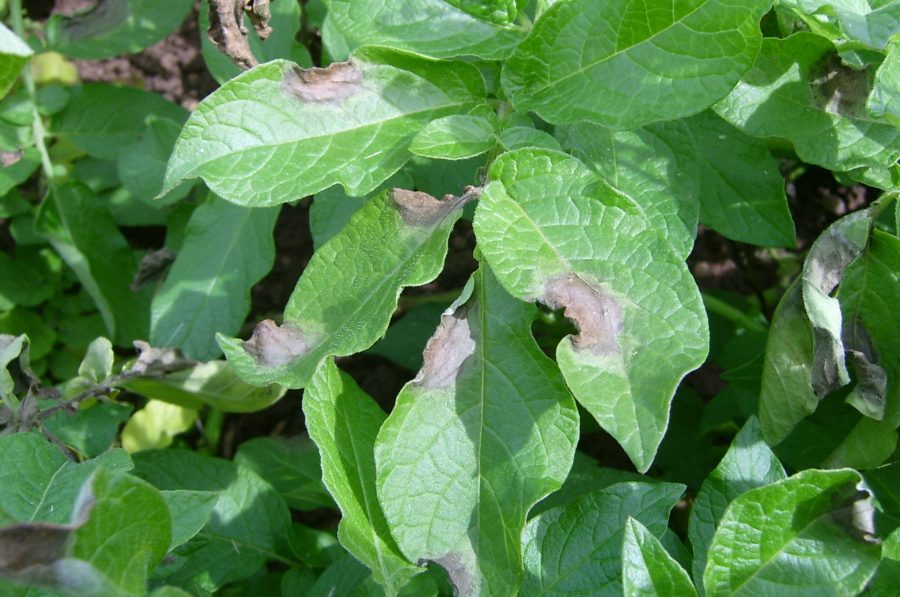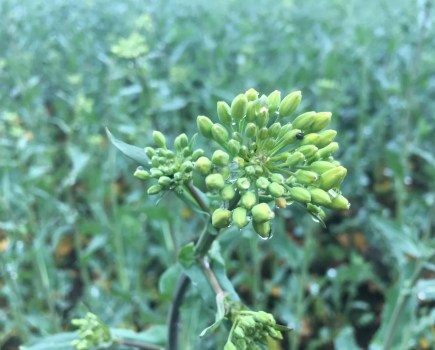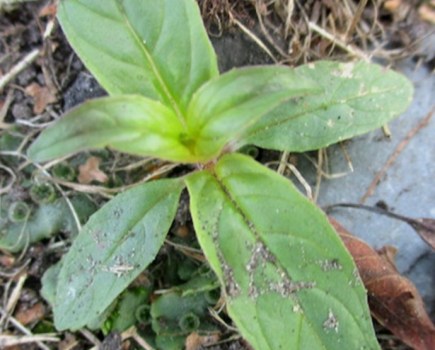A copper-based blight fungicide has been given emergency approval following lobbying of Defra minsters by the Soil Association to retain its use. Tom Allen-Stevens reports.
The Chemicals Regulation Division (CRD) has approved the use of Funguran Progress to control late blight in organic potato crops.
This follows advice by the Expert Committee on Pesticides (ECP) not to authorise the copper hydroxide product in line with recommendations from the CRD risk assessment due to environmental concerns, in particular aquatic toxicity.
The approval was granted on 10 July under an emergency use application made by AHDB last year. Growers in England are able to use the fungicide until 30 September 2020 and have until 31 October 2020 to dispose of stocks.
Marketed in the UK by Certis, Funguran Progress has an active ingredient of 537 g/kg copper hydroxide.
“This is good news for organic potato growers this season,” says Certis UK Potato Product Manager, Nick Badger.
“For the future, Certis Europe has recently submitted a new product submission (Article 33) to CRD for Funguran Progress and we await the outcome of its evaluation.”
Following the ECP recommendation not to approve Funguran, The Soil Association moved swiftly to ensure its use was retained on potatoes, urging affected members to contact Defra farming minister Victoria Prentis.
The decision on whether or not to grant a 120-day authorisation had been passed to Defra, claims the SA, with ministers left to to determine if the need by the organic sector outweighed the potential environmental concerns.
The decision on Funguran follows a previous rejection by Defra of an exemption to the ban on neonicotinoid use for sugar beet seed to protect against virus yellows.
Residue levels
Those wanting to use the fungicide must ensure that any crops treated with the product aren’t exported to EU member states to avoid exceeding Maximum Residue Level (MRL) restrictions. Growers must also ensure that Funguran-treated potatoes are not fed to livestock.
In order to meet the two restrictions the CRD set out a series of stewardship arrangements. To meet these growers are advised to keep comprehensive records of their Funguran use. As well as adherence to the restrictions, any samples submitted by a grower to an organic certifying body may also be used by the CRD to support future applications for Funguran.
Growers who want to use Funguran must:
- Keep a record of their use of Funguran Progress and any other copper-containing product used on the crop
- Keep documents enabling the CRD to trace treated crops through the supply chain
- Be able to provide evidence that no treated product was fed to livestock
To apply Funguran Progress Certis advises using a conventional hydraulic horizontal boom sprayer, keeping to a maximum dose of 2kg/ha. A maximum number of four applications is permitted, with a 10-day interval observed between treatments. The final treatment can be made up to the point when leaves and stems are dead, 14 days before harvest.
The maximum dose of copper substances from all sources, including non-plant protection uses, must not exceed 4kg copper/ha per annum.
Due to the new process for considering Article 53 Emergency Authorisations in the UK, the devolved administrations must consider any application separately to the UK Minister. At present, Certis believes it is unlikely that the devolved administrations of Scotland, Wales and Northern Ireland will vote in favour of permitting the emergency use of Funguran Progress on organic potatoes.
Genetic solutions
AHDB Knowledge Transfer Manager Anne Stone notes that the use of blight-resistant potato varieties will be crucial to a sustainable disease-management programme in the long term.
“Modern technology allows breeders to select varieties resistant to blight using genetic markers. Companies purchasing fresh market potatoes have named and listed new robust varieties, with many more coming through the development process,” she says.
“While take-up of new resistant varieties is a slow progress, organic growers can help by working with breeders, seed suppliers and customers to increase their use.”
Archie Gibson of Agrico, who have developed the Next Generation range of blight-resistant potato, believes copper-based products should not be granted emergency approval for application to crops in 2020.
“The first principle of Integrated Pest Management (IPM) is to select the correct variety with the genetic resistance to the anticipated disease or pest. By promoting the continued use of copper the Soil Association by-passes the IPM protocol and encourages the use of toxic metals on a food crop,” he says.




